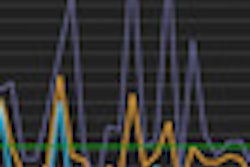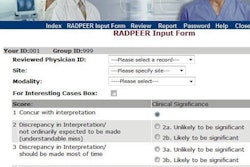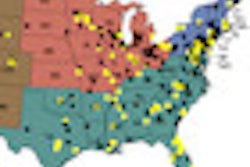Dear AuntMinnie Member,
We're pleased to announce that RADExpo 2012: The Cutting Edge of Imaging is now open and waiting for you!
If you've already registered, check your email inbox for the login information you'll need to access the virtual conference. If you haven't registered, there's still time! Just go to radexpo.auntminnie.com to register for free and gain access to today's event.
Presentations are scheduled to begin at 11 a.m. Eastern time today, with the keynote address by Dr. Bruce Hillman titled "Radiology in America: The Burden of Success." Dr. Hillman will discuss how the breathtaking advances in radiology over the past four decades have ironically made medical imaging a target for external forces that are reshaping the specialty -- whether radiologists like it or not.
After Dr. Hillman's talk, we're offering two simultaneous learning tracks, one on imaging informatics issues such as mobile computing, decision support, and meaningful use, and the other on clinical topics such as PET/MRI, breast tomosynthesis, and CT lung screening. We'll wrap everything up at 3 p.m. Eastern time with a talk by Richard Morin, PhD, on CT radiation dose reduction through data registries.
In addition to the talks, you'll be able to interact with your peers in our unique virtual environment, and win prizes just for attending. And in a RADExpo first, we're pleased to announce that CE and CME credit will be available for select presentations.
Why you should do peer review
Next up, we're pleased to announce a new column called Mary's Musings that features radiologist Dr. Mary Morrison Saltz on the issues that affect today's radiologist.
In her first column, Dr. Saltz offers her perspective on radiology peer review, a chore that many radiologists might prefer to ignore. Although it's time-consuming, peer review -- as well as board recertification -- is an essential tool for ensuring that radiologists stay current and offer the highest-quality service possible.
Read more about Dr. Saltz's take on peer review by clicking here, or visit our Imaging Leaders Digital Community at leaders.auntminnie.com.
Radiology report formats
Finally, everyone agrees that radiology reporting can be improved, but there's less agreement on how to do it. A new article in our PACS Digital Community illustrates the conundrum by describing what happened when researchers tried out three different types of report formats on radiologists and referring physicians of different experience levels.
Unsurprisingly, everyone had a different preference for what they would like to see in a report template. And, in fact, the older radiologists complained the most about nontraditional report formats. Learn more by clicking here, or visit the community at pacs.auntminnie.com.



















